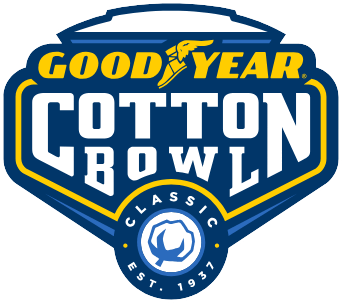The sentiment originated by the coaching staff and echoed on Texas BBSes is the emphasis on speed will make up for the deficiencies created by the loss of Hampton and Rogers and weaknesses reflected in losses to Oklahoma and Oregon.
While I have no problem with the coaches spouting this, the lockstep of opinion as reflected by a number of posts by board regulars puzzles me.
It's like prior to the 2000 campaign, when all I heard was how the offensive line's performance was going to improve due to the new lean mean philosophy inflicted on the OL starters. While Mike Williams' performance was off the chart compared to 99, I would be hard pressed to name another incumbent who showed significant gains. Instead we're all faced with acknowledging the same culprits from the three previous years - simple blocking schemes on running attacks, a discrete set of play calls which fail to build on one another, and a lack of practice time allotment in blocking drills designed to emphasize physical play.
A similar argument can be made on the defensive side of the ball entering the 2001 season. All the coaches publicly talk about is a need to get more speed on the field in the aftermath of the Holiday Bowl. Position changes of Gordon to tackle, McClintock to DE, and Lee Jackson to LB are cited as evidence of this 'new' emphasis on getting more speed on the field.
IMO this ignores the more obvious ailment. I don't blame the coaches for fixating on the more speed quotient, however I'm somewhat startled by the number of folks who seem to wholeheartedly swallow this as a possible successful quick fix.
It could be argued that replacing Shaun Rogers, Casey Hampton, and Greg Brown with players on the roster will by definition make the defense faster, since those were the three slowest players in 40 times at their respective positions.
But anyone who thinks those three spots provided the crux of the defenses difficulties, were not watching the same football games I was.
The lack of a pass rush by the front four, and the lack of instinct demonstrated by the linebackers were much larger issues. Neither of those were caused by a lack of speed, with the possible exception of DT (which was inarguably the strength of the defense). OJ McClintock is not faster than Cory Redding or Kalen Thornton.
Lee Jackson will not be any faster than Tyrone Jones.
I will accept the argument that either new players supplanting the incumbents, or conversely the incumbents themselves stepping up their level of play, will lead to a more effective defense, but it won't be because of a sudden injection of speed.
This group must simply react to the ball better, or the same types of plays which plagued the defense all year long - screens, end arounds, quarterback scrambles, and simple backfield misdirection - will prove their undoing in the coming campaign. That isn't about running faster. The 2000 defense ran plenty fast enough. It's just that too often it was in the wrong direction.
While I have no problem with the coaches spouting this, the lockstep of opinion as reflected by a number of posts by board regulars puzzles me.
It's like prior to the 2000 campaign, when all I heard was how the offensive line's performance was going to improve due to the new lean mean philosophy inflicted on the OL starters. While Mike Williams' performance was off the chart compared to 99, I would be hard pressed to name another incumbent who showed significant gains. Instead we're all faced with acknowledging the same culprits from the three previous years - simple blocking schemes on running attacks, a discrete set of play calls which fail to build on one another, and a lack of practice time allotment in blocking drills designed to emphasize physical play.
A similar argument can be made on the defensive side of the ball entering the 2001 season. All the coaches publicly talk about is a need to get more speed on the field in the aftermath of the Holiday Bowl. Position changes of Gordon to tackle, McClintock to DE, and Lee Jackson to LB are cited as evidence of this 'new' emphasis on getting more speed on the field.
IMO this ignores the more obvious ailment. I don't blame the coaches for fixating on the more speed quotient, however I'm somewhat startled by the number of folks who seem to wholeheartedly swallow this as a possible successful quick fix.
It could be argued that replacing Shaun Rogers, Casey Hampton, and Greg Brown with players on the roster will by definition make the defense faster, since those were the three slowest players in 40 times at their respective positions.
But anyone who thinks those three spots provided the crux of the defenses difficulties, were not watching the same football games I was.
The lack of a pass rush by the front four, and the lack of instinct demonstrated by the linebackers were much larger issues. Neither of those were caused by a lack of speed, with the possible exception of DT (which was inarguably the strength of the defense). OJ McClintock is not faster than Cory Redding or Kalen Thornton.
Lee Jackson will not be any faster than Tyrone Jones.
I will accept the argument that either new players supplanting the incumbents, or conversely the incumbents themselves stepping up their level of play, will lead to a more effective defense, but it won't be because of a sudden injection of speed.
This group must simply react to the ball better, or the same types of plays which plagued the defense all year long - screens, end arounds, quarterback scrambles, and simple backfield misdirection - will prove their undoing in the coming campaign. That isn't about running faster. The 2000 defense ran plenty fast enough. It's just that too often it was in the wrong direction.





